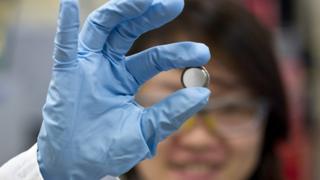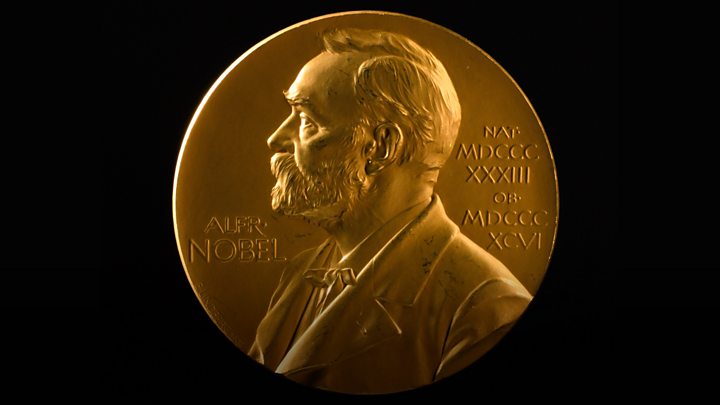Lithium-ion batteries take chemistry Nobel
Three scientists have been awarded the 2019 Nobel Prize in Chemistry for the development of lithium-ion batteries. …

 Image copyright SPL
Image copyright SPL Three scientists have been awarded the 2019 Nobel Prize in Chemistry for the development of lithium-ion batteries.
John B Goodenough, M Stanley Whittingham and Akira Yoshino share the prize for their work on these rechargeable devices, which are used for portable electronics.
At the age of 97, Prof Goodenough is the oldest ever Nobel laureate.
Olof Ramström, from the Nobel Committee, said lithium-ion batteries had “enabled the mobile world”.
The trio will share the prize money of nine million kronor (£738,000).
The lithium-ion battery is a lightweight, rechargeable and powerful battery that is used in everything from mobile phones to laptops to electric cars.
The Nobel Committee said the device “created a rechargeable world”.
It added: “Lithium-ion batteries are used globally to power the portable electronics that we use to communicate, work, study, listen to music and search for knowledge.”

Media playback is unsupported on your device
Göran K Hansson, secretary-general of the Royal Swedish Academy of Sciences, where this year’s awards were announced, said their development enabled “a more sustainable world”.
In addition to their use in electric vehicles, the rechargeable devices could also store significant amounts of energy from renewable sources, such as solar and wind power.
Previous winners of the Nobel Prize in Chemistry
2018 – Discoveries about enzymes earned Frances Arnold, George P Smith and Gregory Winter the prize
2017 – Jacques Dubochet, Joachim Frank and Richard Henderson were awarded the prize for improving images of biological molecules
2016 – Jean-Pierre Sauvage, Fraser Stoddart and Bernard Feringa shared the prize for the making machines on a molecular scale.
2015 – Discoveries in DNA repair earned Tomas Lindahl and Paul Modrich and Aziz Sancar the award.
2014 – Eric Betzig, Stefan Hell and William Moerner were awarded the prize for improving the resolution of optical microscopes.
2013 – Michael Levitt, Martin Karplus and Arieh Warshel shared the prize, for devising computer simulations of chemical processes.
2012 – Work that revealed how protein receptors pass signals between living cells and the environment won the prize for Robert Lefkowitz and Brian Kobilka.




